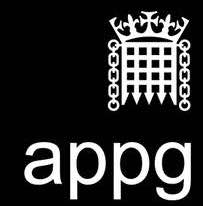The All Party Parliamentary Group for Prescribed Drug Dependence has today released two new research reports highlighting that many doctors and psychiatrists may not be adequately informing patients about the potential risks of antidepressants and may fail to recognize withdrawal symptoms. Additionally, NHS support services, such as NHS 111, have been found to be lacking in effectiveness.
The first report, titled “Antidepressant Withdrawal: A Survey of Patients’ Experience,” was conducted by researchers from the University of Roehampton on behalf of the APPG. It is based on a survey of 319 UK patients experiencing antidepressant withdrawal.
According to the survey, 64% of patients did not receive any information from their doctors about the risks or side effects of antidepressants, and only 2.5% found NHS 111 to be a helpful resource during withdrawal. The survey also reveals that antidepressant withdrawal can have severe impacts on some individuals, with 30% of respondents reporting that their symptoms rendered them indefinitely unable to work.
The second report, “Voice of the Patient: Petition Analysis Report,” identifies weaknesses in the healthcare system based on testimony from 158 individuals affected by prescribed drug withdrawal who responded to two petitions submitted to parliamentary Petitions Committees in Scotland and Wales in 2017. The report concludes that addressing these failures will require systemic changes. Both reports will be submitted to Public Health England as part of its review into prescribed drug dependency and withdrawal, expected to be published in spring 2019.
Dr. James Davies of the University of Roehampton commented: “The majority of those we surveyed and who responded to the petitions reported that they were not properly informed about the risks associated with antidepressants, including withdrawal. This undermines the principle of informed consent, which is crucial for patients to accurately assess the risks and benefits. This is particularly concerning, as the survey indicates that severe antidepressant withdrawal can have devastating effects on patients’ lives, including long-term disability. Furthermore, the research suggests that patients suffering from withdrawal largely find existing NHS support services, such as NHS 111, unhelpful.”
Sir Oliver Letwin MP, Chair of the APPG, said: “These reports indicate that many doctors are unaware of the potential harms of antidepressants and fail to communicate these risks to their patients. This underscores the need for additional guidance and training in this area. We hope that Public Health England will consider this in their current review of prescribed drug dependence. Additionally, it suggests that existing NHS support services are inadequate, highlighting the urgent need for new dedicated services, including a 24-hour national helpline for prescribed drug withdrawal.”
The report “Antidepressant Withdrawal: A Survey of Patients’ Experience” can be found at: https://prescribeddrug.org/wp-content/uploads/2018/10/APPG-PDD-Survey-of-antidepressant-withdrawal-experiences.pdf
The report “Voice of the Patient: Petition Analysis Report” can be found at: https://prescribeddrug.org/wp-content/uploads/2018/10/Voice-of-the-Patient-Petition-Analysis-Report.pdf




